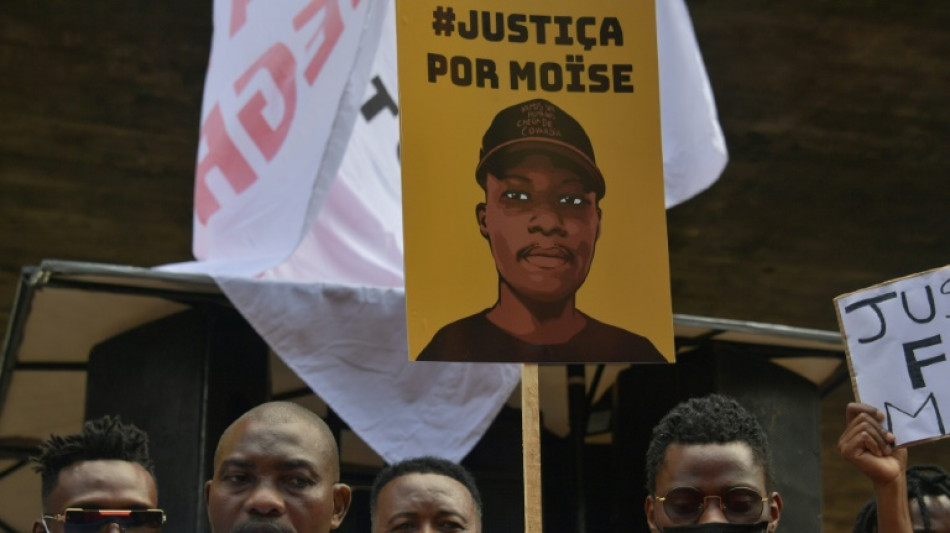
-
 Trophies are what count: Barca's Flick before Atletico cup clash
Trophies are what count: Barca's Flick before Atletico cup clash
-
Trump signs executive order targeting ticket scalping

-
 Eurozone inflation eases in March as tariff threat looms
Eurozone inflation eases in March as tariff threat looms
-
Howe targets 'game-changing' Champions League return for Newcastle

-
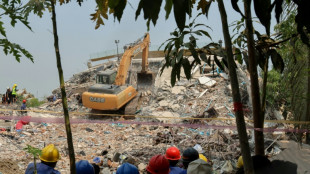 Chinese developer under scrutiny over Bangkok tower quake collapse
Chinese developer under scrutiny over Bangkok tower quake collapse
-
Sirens wail and families cry at Myanmar disaster site
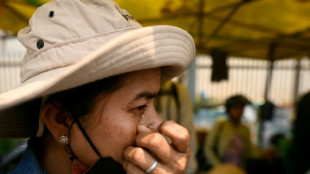
-
 Three things on Australia's former Russian tennis star Daria Kasatkina
Three things on Australia's former Russian tennis star Daria Kasatkina
-
Stock markets rise ahead of Trump tariffs deadline

-
 Facing US tariffs, Canadians hunt for business in Europe
Facing US tariffs, Canadians hunt for business in Europe
-
Trumpets, guns, horses: northern Nigeria's Durbar ends Ramadan in style
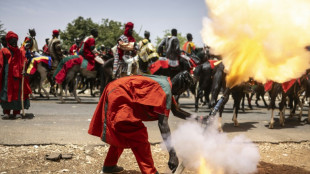
-
 Defiant French far right insists 'we will win' despite Le Pen ban
Defiant French far right insists 'we will win' despite Le Pen ban
-
Hezbollah official among four dead in Israeli strike on Beirut

-
 Liverpool's Slot unfazed by Alexander-Arnold Real Madrid links
Liverpool's Slot unfazed by Alexander-Arnold Real Madrid links
-
Hezbollah official targeted in deadly Israeli strike on Beirut
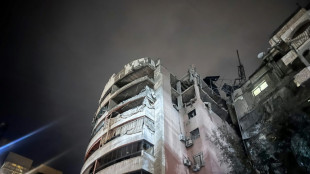
-
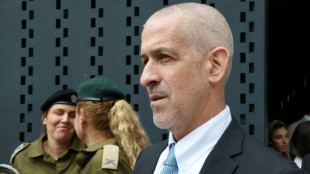 Israel PM drops security chief nominee under fire from Trump ally
Israel PM drops security chief nominee under fire from Trump ally
-
Stock markets edge up but Trump tariff fears dampen mood

-
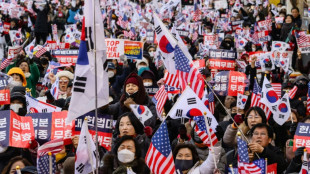 South Korea court to rule Friday on president impeachment
South Korea court to rule Friday on president impeachment
-
'Can collapse anytime': Mandalay quake victims seek respite outdoors
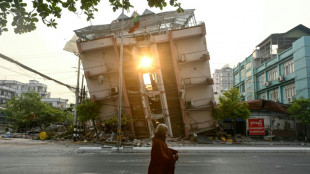
-
 Stock markets edge back but Trump tariff fears dampen mood
Stock markets edge back but Trump tariff fears dampen mood
-
Myanmar holds minute of silence for more than 2,000 quake dead
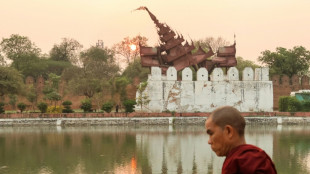
-
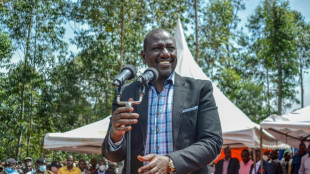 Kenya president still handing cash to churches despite his own ban
Kenya president still handing cash to churches despite his own ban
-
Israeli strike on Beirut kills three
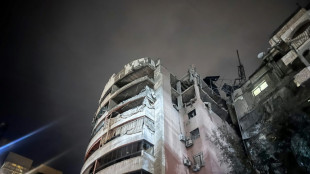
-
 Russia-born Kasatkina says 'didn't have much choice' after Australia switch
Russia-born Kasatkina says 'didn't have much choice' after Australia switch
-
Carmakers face doubts and jolts over US tariffs

-
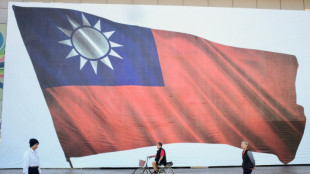 China holds large-scale military drills around Taiwan
China holds large-scale military drills around Taiwan
-
'Heartbreaking' floods swamp Australia's cattle country
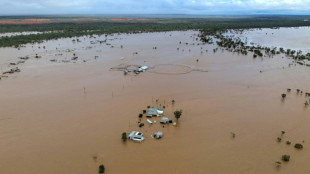
-
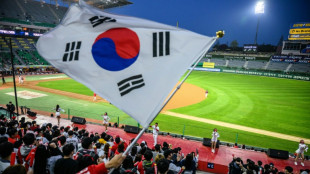 South Korean baseball put on hold after fan killed at stadium
South Korean baseball put on hold after fan killed at stadium
-
Celtics, Thunder power toward NBA playoffs, Lakers shoot down Rockets

-
 French prosecutors demand Volkswagen face fresh Dieselgate trial
French prosecutors demand Volkswagen face fresh Dieselgate trial
-
Sam Mendes to launch four 'Beatles' movies in same month

-
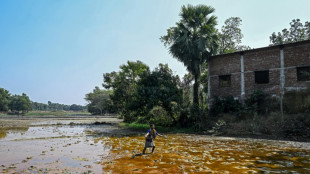 Battery boom drives Bangladesh lead poisoning epidemic
Battery boom drives Bangladesh lead poisoning epidemic
-
South Korea president impeachment ruling Friday: court
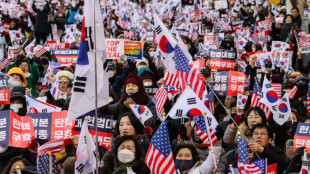
-
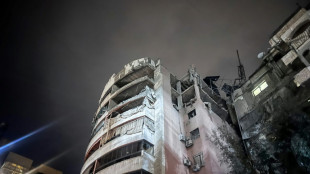 Israel strikes Hezbollah operative in Beirut, kills 3
Israel strikes Hezbollah operative in Beirut, kills 3
-
Desperate Rohingya mark Eid in Indonesia limbo
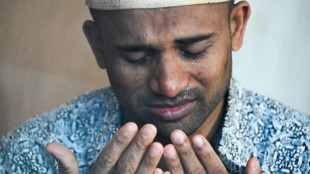
-
 Sam Kerr has 'full support' of Australia squad, vice-captain says
Sam Kerr has 'full support' of Australia squad, vice-captain says
-
Asian markets edge back but Trump tariff fears dampen mood

-
 Teenage opener Konstas gets Australia contract with Ashes on horizon
Teenage opener Konstas gets Australia contract with Ashes on horizon
-
S. Korea court to rule Friday on President Yoon impeachment
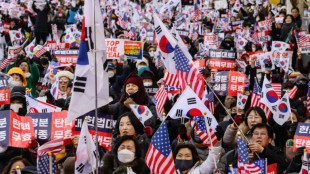
-
 Myanmar to hold minute of silence for more than 2,000 quake dead
Myanmar to hold minute of silence for more than 2,000 quake dead
-
Far-right leaders rally around France's Le Pen after poll ban
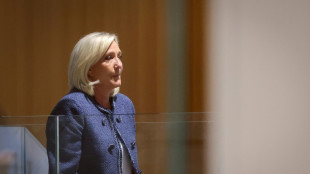
-
 SpaceX launches private astronauts on first crewed polar orbit
SpaceX launches private astronauts on first crewed polar orbit
-
China launches military drills around Taiwan
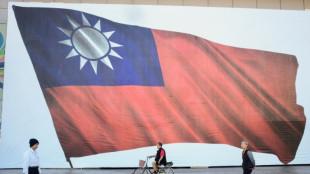
-
 Political support leading to increasing fallout for crypto
Political support leading to increasing fallout for crypto
-
France's Le Pen seeks to keep presidency hopes alive after election ban

-
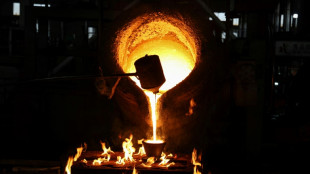 Trump tariffs threaten Latin American steel industry
Trump tariffs threaten Latin American steel industry
-
'Tariff man': Trump's long history with trade wars

-
 Tariffs: Economic 'liberation' or straitjacket?
Tariffs: Economic 'liberation' or straitjacket?
-
Undocumented migrants turn to Whatsapp to stay ahead of US raids

-
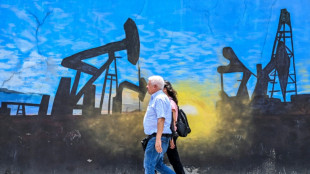 What next for Venezuela as Trump goes after oil revenues?
What next for Venezuela as Trump goes after oil revenues?
-
New Zealand Rugby and Ineos settle sponsorship dispute


African migrants face racism, violence in Brazil
The brutal murder of a Congolese man at a Rio de Janeiro beach has cast a harsh spotlight on the ordeals African migrants face in Brazil, the country with the biggest black population outside Africa.
Moise Kabagambe, a 24-year-old migrant who fled to Brazil with his family in 2011 to escape violence in the Democratic Republic of Congo, was beaten to death with clubs and a baseball bat at the beach-front bar where he worked in Rio's upscale Barra da Tijuca neighborhood.
His family says a group of assailants attacked him after he demanded payment of two days' overdue wages.
The January 24 killing has unleashed a flood of outrage, grief and soul-searching in Brazil, where many African migrants say they face poverty, violence and double discrimination as both foreigners and blacks.
"I'm thinking of leaving Brazil after what happened with Moise. I'm afraid for my children," said Sagrace Lembe Menga, who also fled the conflict-torn Democratic Republic of Congo, arriving in 2015.
The 33-year-old refugee and mother of two says she has regularly faced racism in her adoptive country, especially at the salon where she works as a hair stylist.
"Some people treat you like you're insignificant, like an animal," she told AFP.
"I've had people ask me if I live with giraffes."
- Lack of opportunity -
Brazil has 1,050 refugees from the Democratic Republic of Congo, and around 35,000 African immigrants in all -- though experts say the official figure is likely an underestimate.
They often live in poor slums dominated by drug gangs, and are paid far less than other immigrants in Brazil -- an average of 2,698 reais ($510) a month, compared with 4,878 reais a month for all immigrants combined.
"If I had to tell the story of every incident of racism I've faced, I could write a book," said Elisee Mpembele, 23, a Congolese singer who arrived in Brazil in 2013.
"Wary looks, stares, security guards following me around the supermarket. The other day, I asked some police officers for directions, and they ended up searching me."
He said finding work as a musician was tough, so he often had to resort to odd jobs to make ends meet.
Racism and discrimination are nothing new in Brazil, home to the second-biggest black population in the world, after Nigeria.
The country was the last in the Americas to abolish slavery, in 1888, and blacks still face deep-rooted poverty, exclusion and systemic racism.
As foreigners, African migrants are even worse off.
The racism they face in Brazil "is all the more perverse given that 55 percent of Brazilians are black," said Bas'llele Malomalo, an expert on African-Brazilian migration at Unilab university.
"The integration problems faced by African migrants have the same roots as those encountered by former slaves, who were still seen as objects, as animals, at abolition," he said.
- 'Keep my head down' -
All too often, racism also translates into violence.
Seventy-seven percent of homicide victims in Brazil in 2019 were black.
The danger for black foreigners is even greater, said Malomalo.
"In the minds of the racists, since it's a foreigner, no one's going to defend him," he said.
"Whenever someone hassles me, I just keep my head down to avoid any problems," said Modou Fall, a 34-year-old Senegalese migrant who sells sunglasses on Rio's famed Copacabana beach.
"It's hard working here. I struggle to send money to my family."
Many Africans arrive in Brazil full of "entrepreneurial spirit," said Rui Mucaje, head of the Afro-Brazilian Chamber of Commerce (AfroChamber.)
But most end up doing menial jobs in the informal sector, he said.
"It's not uncommon to see people with university degrees end up working jobs they're way overqualified for," he said.
As examples, he cited an engineer who is working at a supermarket and a surveyor working as a hotel cleaner.
Kabagambe's killing, he said, is "the tragic result of the problems created by racism in Brazil."
J.Williams--AMWN